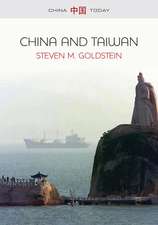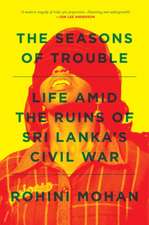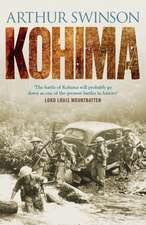Hidden Horrors: Japanese War Crimes In World War Ii
Autor Yuki Tanakaen Limba Engleză Hardback – 7 iun 2019
| Toate formatele și edițiile | Preț | Express |
|---|---|---|
| Paperback (3) | 126.48 lei 6-8 săpt. | |
| Avalon Publishing – 16 dec 1997 | 126.48 lei 6-8 săpt. | |
| Taylor & Francis – 7 dec 2020 | 258.15 lei 6-8 săpt. | |
| Rowman & Littlefield – 6 oct 2017 | 409.14 lei 6-8 săpt. | |
| Hardback (2) | 682.68 lei 6-8 săpt. | |
| Rowman & Littlefield – 5 oct 2017 | 682.68 lei 6-8 săpt. | |
| Taylor & Francis – 7 iun 2019 | 769.03 lei 6-8 săpt. |
Preț: 769.03 lei
Preț vechi: 1105.61 lei
-30% Nou
Puncte Express: 1154
Preț estimativ în valută:
147.20€ • 159.95$ • 123.73£
147.20€ • 159.95$ • 123.73£
Carte tipărită la comandă
Livrare economică 21 aprilie-05 mai
Preluare comenzi: 021 569.72.76
Specificații
ISBN-13: 9780367010157
ISBN-10: 0367010151
Pagini: 304
Dimensiuni: 136 x 212 mm
Greutate: 0.72 kg
Ediția:1
Editura: Taylor & Francis
Colecția Routledge
Locul publicării:Oxford, United Kingdom
ISBN-10: 0367010151
Pagini: 304
Dimensiuni: 136 x 212 mm
Greutate: 0.72 kg
Ediția:1
Editura: Taylor & Francis
Colecția Routledge
Locul publicării:Oxford, United Kingdom
Cuprins
List of Illustrations, Foreword, John W. Dower, Acknowledgments, Author's Note, Introduction, 1 The Sandakan POW Camp and the Geneva Convention, 2 The Sandakan Death Marches and the Elimination of POWs, 3 Rape and War: The Japanese Experience, 4 Judge Webb and Japanese Cannibalism, 5 Japanese Biological Warfare Plans and Experiments on POWs, 6 Massacre of Civilians at Kavieng, Notes, About the Book and Author, Index
Descriere
This book documents for the first time previously hidden Japanese atrocities in World War II, including cannibalism; the slaughter and starvation of prisoners of war; the rape, enforced prostitution, and murder of noncombatants; and biological warfare experiments. The author describes how desperate Japanese soldiers consumed the flesh of their own comrades killed in fighting as well as that of Australians, Pakistanis, and Indians. Another chapter traces the fate of 65 shipwrecked Australian nurses and British soldiers who were shot or stabbed to death by Japanese soldiers. Thirty-two other nurses, who landed on another island, were captured and sent to Sumatra to become “comfort women‗prostitutes for Japanese soldiers. Tanaka recounts how thousands of Australian and British POWs died in the infamous Sandakan camp in the Borneo jungle in 1945. Those who survived were forced to endure a tortuous 160-mile march on which anyone who dropped out of line was immediately shot. Only six escapees lived to tell the tale. Based on exhaustive research in previously closed archives, this book represents a landmark analysis of Japanese war crimes. The author explores individual atrocities in their broader social, psychological, and institutional milieu and places Japanese behavior during the war in the broader context of the dehumanization of men at war—without denying individual and national responsibility.
Notă biografică
Yuki Tanaka is a Visiting Research Fellow at the Australian National University.













